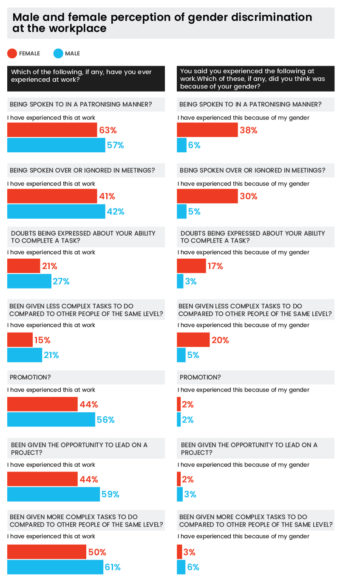Research & Input Credit: Savoy Stewart – Commercial Property Experts
- 42% of men and 41% of women have been spoken over or ignored in a meeting.
- 30% of women believe they were spoken over or ignored in a meeting because of their gender while only 5% of men would say the same.
- When it comes to positive scenarios such as being promoted, only 2% of men and women believe gender played a role in getting the promotion.
New analysis from the Market Inspector, as per the report, ‘Gender Inequality in the Workplace’ shows that there is still progress that needs to be made in the workplace. The report shows that in 2017, only 35% of women in the UK are in managerial positions, while when it comes to junior positions, 69% of employees are female; perhaps alluding that women are less likely to take on or be offered leadership roles.
As a result, Savoystewart.co.uk decided to find out what men and women think of each other in the workplace, and whether they blame gender inequality for the issues they experience.
To do so, Savoystewart.co.uk extracted data from a YouGov survey which asked 1,579 adults in the UK who are working, or have previously worked, if they have experienced different scenarios at work regarding gender inequality. Once the survey had clarified that they had experienced an uneasy situation at their place of work, the respondents were then asked if they believe their gender to have played a role.
Savoy Stewart pulled the questions from YouGov and identified the following information.
When asked if they have ever been spoken to in a patronising way, 57% of the male respondents said yes, while a whopping 63% of females also said they had. Yet, when asked if they believe the reason they’ve been spoken to in a patronising is because of their gender, 6% of men said yes, while 38% of females claim gender to have contributed to being spoken to in a patronising way.
The respondents were also asked if they have been spoken over or ignored in meetings, and the number of women (41%) and men (42%)









